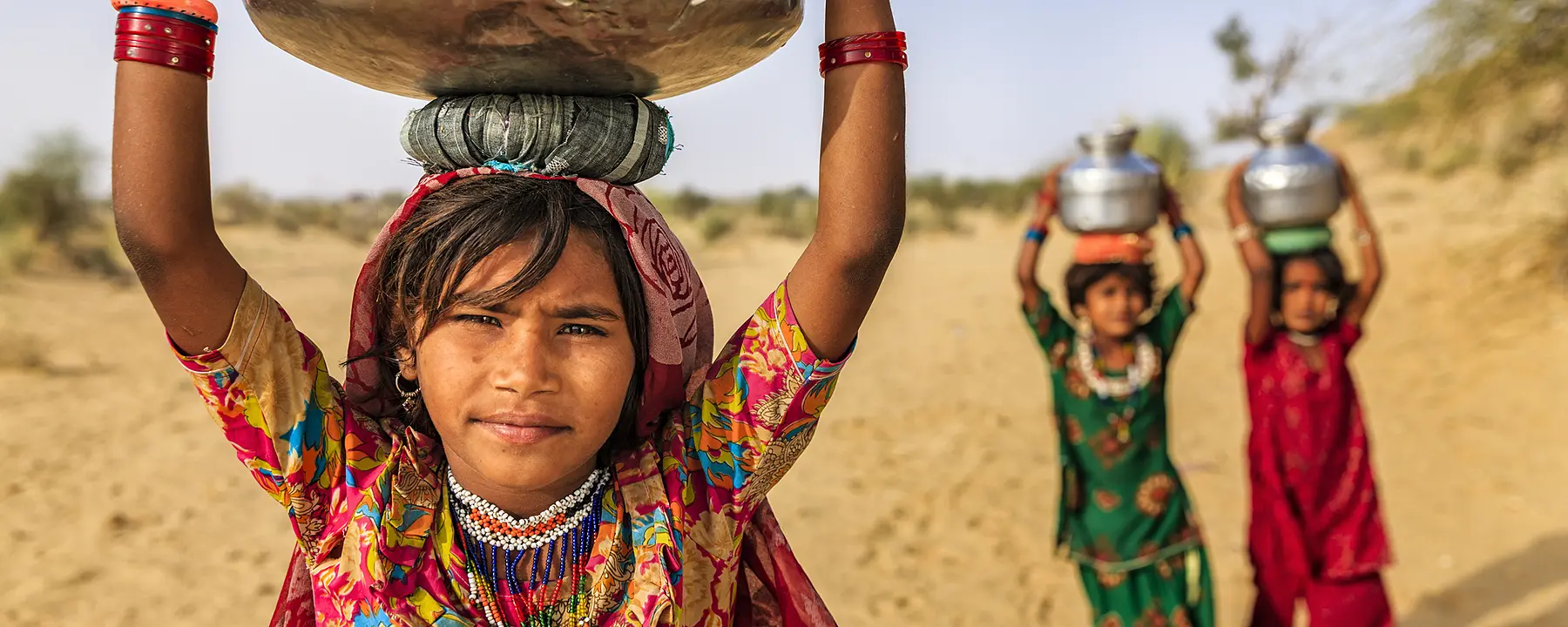Partnering with Australia’s flagship program Water for Women to facilitate Water Sanitation and Hygiene (WASH) initiatives
Objective
To create WASH interventions for India’s vulnerable and minority population.
Approach
We partnered with Australia’s Water for Women to implement and facilitate Water Sanitation and Hygiene programs in two states of India.
Impact
Our efforts increased private sector engagement and collaboration between the government, public, and civil society organizations to implement WASH.
Millions of people around the world lack access to basic water services. In India, this problem has reached a crisis. According to UNICEF, over 50% of India’s population lacks access to safely managed drinking water with 15% of the population practicing open defecation. Because India is the second-most populated country in the world, with 1.38 billion people, addressing these issues is crucial.
Barriers for women seeking sanitation facilities
In India, women, and sexual and gender minorities, in particular, face challenges that can block their access to clean water or safe bathroom facilities. Besides discrimination based on caste, women face a specific set of barriers during menstruation, pregnancy, menopause, and aging. In addition, those with a disability often cannot safely access sanitation facilities. The Water for Women Fund provided the following statistics showing how Indian women change their behavior because clean, safe, accessible sanitation facilities are unavailable:
- 1 in 4 women reduce their water intake to minimize toilet use
- 1 in 3 women reduce their food intake to minimize toilet use
- 76% of women consider traveling long distances to use safe sanitation facilities
- 23% of girls reaching puberty are forced to drop out of school due to lack of safe sanitation facilities
Promoting Access to Clean Water by Establishing Water for Women
To address these issues, the Australian government established the flagship program Water for Women, which seeks to improve health, gender equality, and well-being in Asian and Pacific communities by providing sustainable water, sanitation and hygiene through socially inclusive projects. Currently, Water for Women is delivering 20 WASH projects in 15 countries through the partnership with 10 civil society organizations.
Overcoming obstacles to proper water, sanitation and hygiene systems
Achieving water, sanitation and hygiene goals in India requires 70% financial contribution from the private sector to achieve its sustainable development goals. Unfortunately, the private sector contributes less than 10% because of complicated challenges, including a misalign in priorities between the private and public sectors. Additionally, private sector engagement is limited, excluding vulnerable communities that are considered “bottom of pyramid” markets, which are costly to enter.
RTI India facilitating WASH programs in two states of India
Water for Women engaged RTI to implement WASH programs and address India’s unique barriers. Through our program facilitation in Odisha and Rajasthan, India, we aim to improve PSE by increasing collaboration between the community, state governments, private sector, and civil society organizations.
Our team designed and developed India’s WASH program, balancing a public-private engagement model and a community-led business model. The water, sanitation and hygiene program directly responded to the onset of COVID-19 by further engaging in private sector networking to increase safe sanitary processes rapidly. Additionally, the program further incorporated the private sector, creating a blended finance-based initiative with the government continuing to act as the facilitator.
Developing community and private sector involvement in WASH program development
Through our support, the India WASH program achieved the following:
- Engaged with 8 government departments and 50+ private sector companies, which led development of public-private partnership-based projects worth ~AUD 30 million projected to benefit ~250,000 households, once commissioned
- Facilitated financial partnerships with private sector companies and civil society organizations through which women were trained to operate their own community-led business model and generate revenue
- Maximized impact through targeted collaborations with multilateral agencies such as the Asian Development Bank and United Nations International Children’s Emergency Fund and bilateral agencies such as USAID and Global Affairs Canada
Our efforts drastically increased private sector contributions, so the WASH programs no longer rely as heavily on funding from India’s government. We also facilitated development of handwashing programs and handwashing stations that addressed potential blocks from the private sector’s limited capabilities. In addition, our work increased sanitary product distribution and awareness that impact 7,726 tribal women and over 2,000 schoolgirls.
RTI’s commitment to the Water for Women’s WASH program continues to establish sustainable and socially inclusive safe WASH in India. While the programs have achieved commendable results, our team seeks to continue private sector engagement and expand WASH programs in India.
Learn more about RTI’s urban sanitation and water sector resources.
- Water for Women
